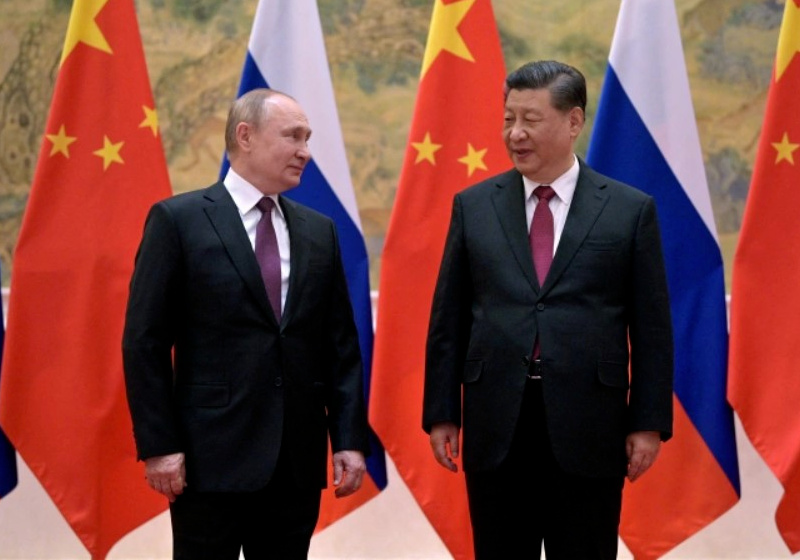This past week, Kazakh President Kassym-Jomart Tokayev pointed to a $5.7 billion disparity in Kazakh and Chinese trade statistics due to “smuggling rings on the Kazakh-Chinese border” and promised to dismantle them. Kazakh Ambassador to China Gabit Koishibayev tried to calm Chinese worries that the Organization of Turkic States (OTS) could lead to the revival of Pan-Turkism and assured China that Kazakhstan-China relations remain a top priority for his government. A report by the Foreign Correspondents Club (FCC) of China was published about the decline of media freedom in China. Despite the boycott by the US, the UK, Canada and Australia, the Winter Olympics’ Opening Ceremony kick-started in Beijing with a number of world leaders present. Elsewhere, Pakistan has reportedly secured $5 billion in loans from Russia, China and Kazakhstan, and India and the 5 Central Asian states have agreed to form a joint working group on Chabahar Port of Iran.

Image source: Al Jazeera
On the 1st of February Kazakhstani President Kassym-Jomart Tokayev stated that $5.7 billion worth of goods is missing in Kazakh customs records (Eurasianet). The Kazakh record of $16.7 billion traded across the Sino-Kazakh border is at odds with the Chinese record of $25.2 billion for the same year. Tokayev pins the blame for this discrepancy squarely on the shoulders of “smuggling rings”. This development furthers Tokayev’s public crusade against corruption, a common criticism of the Nazarbayev regime. In 2021 an ongoing corruption case was launched against the Nur-Sultan Light Rail system project (The Diplomat). The smuggling ring case ties the domestic policy focus of anti-corruption with the Sino-Kazakh border, a major trade route for both countries.
On a related note, Kazakhstani ambassador to China Gabit Koishibayev dismissed Pan-Turkism fears and reaffirmed China as a foreign policy priority for Kazakhstan (SCMP). The ambassador denied that the OTS is a Turkey-dominated project, saying that Kazakhstan and Uzbekistan, among other member-states, hold significant influence over it. Furthermore, Koishibayev also said that cooperation with China is a priority for Kazakhstan. The OTS is Turkey’s effort to create a sphere of influence in Central Asia, and as the name implies, Turkic identity (which is shared among most Central Asian Ethnicities) is a core part of it. Pan-Turkism is an ideology that emphasizes unity among Turkic people, which potentially includes the Uighur minority in Xinjiang, China, that faces oppression from Beijing. The OTS project at this time is at a nascent stage. It has to compete with Russia’s historically strong political, and China’s growing economic influence in Central Asia.
Earlier in the week, BBC and DW had cited the Foreign Correspondents Club (FCC) of China about the decline of media freedom in the country. The report by the FCC is said to highlight that the foreign and domestic correspondents operating in China face physical harassment and online trolling, and the families of Chinese correspondents are also being targeted. This is happening against the background of the boycott of the Winter Olympics by some Western states (the US, UK, Canada & Australia), while many world leaders including the Russian President Vladimir Putin, the UN Secretary-General Antonio Guterres, WHO Director-General Tedros Adhanom Ghebreyesus, Saudi Arabia’s Crown Prince, the Pakistani Prime Minister Imran Khan, and the leaders of the 5 Central Asian countries are attending the opening ceremony as distinguished guests (Al Jazeera).
In other news, it was reported that Pakistan has secured $5 billion in loans from Russia, China and Kazakhstan (IDN), a claim that was almost immediately denied by the Pakistani government (Daily Pakistan). It was also reported that during the maiden India-Central Asia summit hosted by PM Modi last week, India and the 5 Central Asian states have agreed to form a joint working group on Chabahar Port of Iran and to develop a secure, reliable passage between the two regions (India Times, WION).

